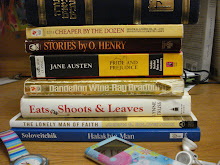Over shabbos, a close family friend raised an interesting issue. A discussion of the parsha somehow led into speculation about some of the modern historical, scientific, and anthropological challenges to certain accounts in the Torah.
For instance, let’s say you believe that it has been 5,768 years since Adam HaRishon spoke. This assumes that you adopt the more scientifically compatible position that a “day” of creation really means a stage, and that each day could have lasted thousands of years, so that 5768 is not the age of the universe, but rather the age of humanity. Okay, so let’s say you accept that. Still, modern anthropology tells us that human beings have existed for much much longer than that. How do we resolve this contradiction?
The point our friend was making is that within the religious Jewish world very little attention is paid to such questions. They are generally ignored, or dismissed as unimportant or uninteresting. This disturbs him, because he feels that, especially within the Modern Orthodox community which professes to unite the world of secular knowledge with that of religious scholarship, these issues should not be swept under the rug.
And my thoughts, on a personal level, are as follows: as many of you know, I am interested primarily in the humanities and the arts. I love literature, writing, philosophy, music, drama. I do not like math. I do not like science. I often find history somewhat dry. This may be a failing. This may just be my personality.
Regardless, I tend to spend my time studying and pursuing the areas that I find compelling. This means that I know very little about science, very little about anthropology. Most of the questions and challenges to religion that exist in those areas are foreign to me simply because I do not know enough to even realize that they exist. Our friend argued that this approach is intellectually dishonest. And I wonder: is it?
Even if I studied those areas and began to comprehend some of the problems and seeming contradictions that exist, even if I encountered a question with no apparent answer, would I give up my faith?
I honestly think not. I know that there are questions that are not easily resolved. I know that I certainly do not have all the answers. But I don’t feel that I have to. The things that form the basis of my faith are unrelated to the Torah’s apparent scientific accuracy, or lack thereof.
So I feel justified in not pursuing these issues. I’m, frankly, not all that interested in these areas, and don’t feel compelled to research and discover the questions I know are out there.
Is this a mistake? Is it intellectually dishonest? Any thoughts?


